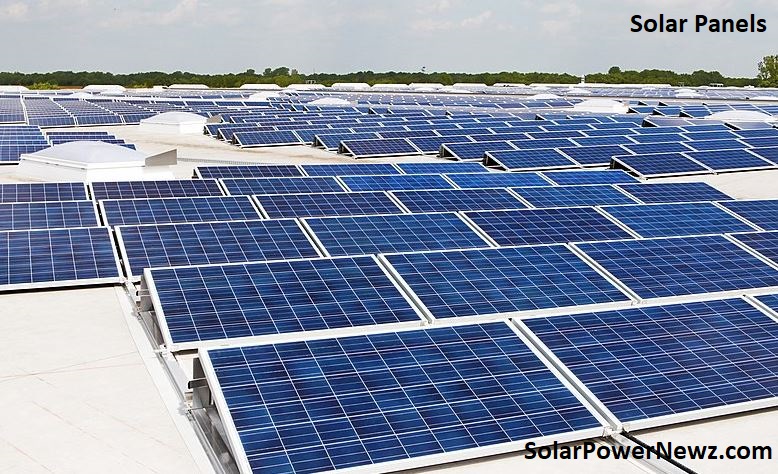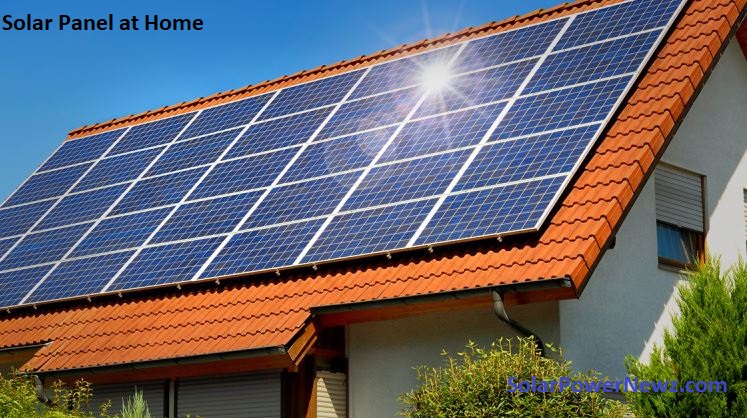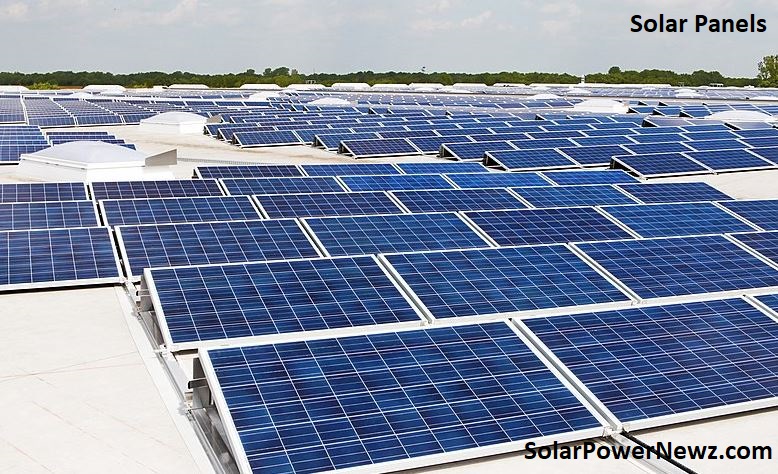What is Solar Power?
Solar power is the use of the sun’s energy to create electricity, either directly through the use of photovoltaic cells in solar panels and transparent photovoltaic glass, or indirectly through the use of thermal energy (heat).

Table of Contents
The most effective use of photovoltaics is in conventional solar panels. However, photovoltaic glass opens up other options, such as colour selection, and enables generation from previously ineligible surfaces, like as building windows, that can now produce energy. Other solutions exist, such as low-tech solar heaters made from recycled aluminium cans that offer a cheap source of heat.
In order to capture more of the thermal energy from the sun, concentrated solar power uses several lenses or reflectors. Typically, thermal energy gathered throughout the day is used to heat oil or molten salts, which hold heat throughout the night to boil water for steam turbine generators.
To reduce costs, boost self-sufficiency, and enhance sustainability, data centres are progressively implementing solar power and other clean electricity sources like wind and tidal power. Apple, Google, and Microsoft are among the leading IT companies investing in renewable energy.
In addition to being less expensive than fossil fuels, solar energy also protects the environment by avoiding the costs associated with extraction, spill cleanup, and combustion-related pollution reduction.
What is Solar Power |5 types of Solar energy |Can homes be run by solar Power
One of the numerous advantages of solar energy is that it is a clean, renewable energy source devoid of greenhouse emissions or other contaminants. Because the sun is always shining somewhere on the world, it is a dependable source of energy that can produce electricity in far-off places. where installing electrical lines might be challenging. A practical and economical option for many individuals, solar electricity is also getting more and more affordable.
What five types of solar energy are there?
Solar energy can take many different forms, including:
- Photovoltaic solar energy: Photovoltaic (PV) cells are used in this form of solar energy to turn sunlight into electricity. The semiconductor materials used to make PV cells, like silicon, get stimulated and move around when sunlight strikes the cells, creating an electric current.
- Solar thermal energy: This form of solar energy uses solar collectors to gather the heat from the sun and convert it into electricity, hot water, or space heating for structures. Water can be heated using solar thermal collectors for domestic or commercial usage, or they can be used to drive a turbine to produce energy.
- Using mirrors or lenses, concentrated solar power (CSP) concentrates the sun’s energy onto a tiny area where it is then used to produce electricity. Focused solar energy can be used in CSP systems to heat a fluid, which can then be used to produce steam and power a turbine to produce electricity.
- Passive solar energy: This form of solar energy uses the structure and materials of a building to absorb and store solar energy for lighting and heating needs. In order to maximise the quantity of sunshine that enters a building and to store the heat from the sun in thermal mass materials like concrete or masonry, passive solar design approaches can be implemented.
- Solar-powered water treatment: In this form of solar energy, water treatment units like desalination plants or water purification systems are powered by solar panels. Pumps and other mechanical parts of these systems can be powered by solar energy, which can also be utilised to generate electricity for lighting and other uses.
Can homes be run by solar Power?

Who wouldn’t want to convert their family farm to a solar-powered enterprise? That sounds like a pretty good recipe for happiness, no? Making the switch to solar might have a lot of advantages. But be careful: Before you cut the cord with your local utility provider, there are many things to consider.
Free solar energy (after the initial investment of setting up the system and your maintenance costs). Solar energy is effective (although how efficient is debated by some experts). Solar energy is also pollution-free, which is significant to many of us in these times of climate change.
However, the upfront expenditures of setting up a solar power system can be prohibitive. In addition, if you choose to live entirely off the sun, you may have to deal with bad weather, which could interfere with your goals.
In circumstances where you can’t acquire enough electricity or don’t have any power stored, solar panels allow you to continue using power supplied by the utility provider. However, for many, the endgame is to completely do away with the necessity for fossil fuels, fire the fossil fuel-based utility companies, and live on solar energy.
Considerable financial, mental, and emotional expenditures are needed to run your home entirely on solar electricity. Compared to the standard arrangement, the infrastructure is a little more complicated. Your new system’s calculations and operations must be more exact. You might not have enough fuel to get by if you make a mistake.
What are four facts regarding solar energy?
Here are four sun energy-related facts:

- Solar energy is produced by harnessing the sun’s energy, which is a virtually endless and renewable source of energy. Solar energy is a clean and sustainable energy source since it produces power without the release of any greenhouse gases or other pollutants.
- The cost of solar panels and other solar power equipment has drastically fallen in recent years, making it more reasonable for businesses and homeowners to instal solar power systems. Additionally, a lot of towns and states provide financial incentives like tax breaks and rebates to promote the use of solar power.
- There are numerous uses for solar energy, including the production of electricity, the heating of water, and the operation of various machines and appliances. It can be used to supply electricity in rural locations where it might be challenging to establish power lines, as well as to power residences, companies, and other buildings.
- Solar energy is a trustworthy source of energy since the sun is always shining somewhere on the globe. Modern solar power systems are also built to last for a long time; some solar panels have a lifespan of 25 years or more.
Why is solar energy best?
Solar energy is regarded as one of the best forms of renewable energy for a number of reasons, including:
- Solar energy is renewable and clean since it is produced by the sun, a potentially endless supply of energy. Solar power is a clean and sustainable energy source since it produces electricity without the release of any greenhouse gases or other pollutants.
- Solar energy is generally accessible since it is a source of power that is always there because the sun is shining somewhere on the planet. Solar electricity may be produced in a number of locations thanks to the installation of solar panels on rooftops, in open spaces, and even on the sides of buildings.
- It is now more affordable for businesses and homeowners to instal solar power systems because to the sharp decline in price of solar panels and other solar power equipment in recent years. In addition, many cities and governments offer financial incentives, such as tax exemptions and rebates, to encourage the usage of solar electricity.
- Solar energy can be used for a variety of purposes, including the generation of electricity, water heating, and the operation of machinery and appliances. It can be used to power homes, businesses, and other facilities in rural areas where it could be difficult to instal power lines.
- Solar power is a trustworthy source of energy: Modern solar power systems are made to last for a long time, with some solar panels having a lifespan of 25 years or more. Additionally, somewhere on the earth, the sun is always shining, making solar power a dependable source of energy.
FAQs.
What is solar power?
Solar power is the use of the sun’s energy to create electricity, either directly through the use of photovoltaic cells in solar panels and transparent photovoltaic glass, or indirectly through the use of thermal energy (heat).
The most effective use of photovoltaics is in conventional solar panels. However, photovoltaic glass opens up other options, such as colour selection, and enables generation from previously ineligible surfaces, like as building windows, that can now produce energy. Other solutions exist, such as low-tech solar heaters made from recycled aluminium cans that offer a cheap source of heat.
How does solar power work?
Photovoltaic (PV) cells, which are built of semiconductor materials like silicon, are used to generate solar energy. When sunlight strikes the PV cells, it excites the semiconductor material’s electrons, which then travel around and produce an electric current. The captured current is then transformed into useful electricity that may be utilised to run buildings such as homes and businesses.
What are different types of solar power systems?
There are several different types of solar power systems, including grid-tied systems, off-grid systems, and hybrid systems. Grid-tied systems are connected to the electrical grid and can send excess electricity back to the grid for others to use, while off-grid systems are not connected to the grid and must store excess electricity in batteries for later use. Hybrid systems the combine elements of both grid-tied and off-grid systems.
Is solar power a reliable source of energy?
Solar energy is a trustworthy source of energy, yes. Solar power is a reliable energy source since the sun is always shining somewhere on the globe. Modern solar power systems are also built to last for a very long time, with some solar panels having a lifespan of up to 25 years.
Is solar energy a clean, renewable energy source?
A clean and renewable energy source is solar energy. Solar energy is a clean and sustainable energy source since it produces power without the release of any greenhouse gases or other pollutants.
Is installing solar electricity expensive?
The price of solar power systems might vary depending on the system’s size, complexity, location, and other elements. In general, the price of installing a solar power system has dramatically fallen in recent years, making the conversion to solar energy more accessible for households and businesses. To promote the use of solar energy, many states and municipalities also provide financial incentives like tax credits and rebates.
Can remote locations use solar energy?
Yes, solar energy can be used in isolated places where installing power lines may be difficult or expensive. These places can have solar power systems installed to supply electricity for things like heating and lighting.